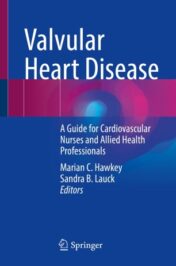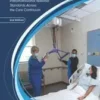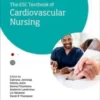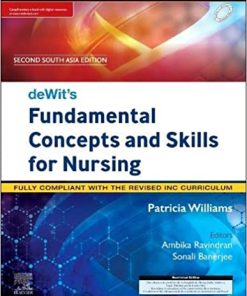Valvular Heart Disease A Guide for Cardiovascular Nurses and Allied Health Professionals 2022 original pdf
$12
Valvular Heart Disease A Guide for Cardiovascular Nurses and Allied Health Professionals 2022 original pdf
This book serves as the “go-to” resource for cardiovascular nurses and other health care practitioners involved in the care of patients with acquired valvular heart disease. It includes unique information about heart valve anatomy and pathophysiology, the complexity of clinical presentations and diagnostic evaluation, patient education and shared decision-making, surgical and transcatheter treatment options, and transition to palliative care. The content focuses primarily on the specialized care of patients with aortic stenosis and regurgitation, and mitral and tricuspid regurgitation.
In addition, this unique resource provides timely information to guide a patient-centred and team-driven approach that reflects contemporary and innovative practice in the management of valvular heart disease. The essential topics of strengthening the multidisciplinary Heart Team and programmatic processes of care, the priorities for nursing care, and the multifactorial challenges of managing this complex patient population are explored in detail. Importantly, this resource aims to support all clinicians who are involved in the various timepoints of patients’ full trajectory of care, from their evaluation pathway, admissions for treatment, and long term follow-up.
Clinicians require contemporary knowledge and evidence to guide their practice, provide appropriate care for this complex patient population, and contribute to the advancement of practice. To date, there has been little emphasis placed on the management of valvular heart disease in cardiovascular nursing and allied health curriculum. This book fills this gap and addresses the pressing need for a user-friendly resource to guide the care for this growing population in a rapidly changing clinical environment.
The editors are international leaders in the care and management of patients with acquired valvular heart disease and program development. They are widely recognized for their pioneering role in shaping the way we care for these patients.
Related Products
MIDWIFERY & NURSING
MIDWIFERY & NURSING
Leadership in Healthcare: Essential Values and Skills, Fourth Edition (EPUB)
MIDWIFERY & NURSING
MIDWIFERY & NURSING
Fundamentals: Perspectives on the Art and Science of Canadian Nursing, 2nd Edition (EPUB)
MIDWIFERY & NURSING
Reflective Practice for Nurses (Student Survival Skills) (Original PDF from Publisher)
MIDWIFERY & NURSING
Reading, Understanding, and Applying Nursing Research, 6th Edition (EPUB)
MIDWIFERY & NURSING
Genetics and Genomics in Nursing and Health Care, 2nd Edition (EPUB)
MIDWIFERY & NURSING
Pflege bei chronisch-entzündlichen Darmerkrankungen (Original PDF from Publisher)
MIDWIFERY & NURSING
Wege in die generalistische Pflegeausbildung (Original PDF from Publisher)
MIDWIFERY & NURSING
Informal Caregivers: From Hidden Heroes to Integral Part of Care (EPUB)
MIDWIFERY & NURSING
Integrating Therapeutic Play Into Nursing and Allied Health Practice (EPUB)
MIDWIFERY & NURSING
MIDWIFERY & NURSING
MIDWIFERY & NURSING
Dimensional Analysis: Calculating Dosages Safely, Third Edition (EPUB + Converted PDF)
MIDWIFERY & NURSING
Writing for Publication in Nursing, 5th Edition (Original PDF from Publisher)
MIDWIFERY & NURSING
Drain’s PeriAnesthesia Nursing: A Critical Care Approach, 8th Edition (EPUB)
MIDWIFERY & NURSING
Oxford Handbook of Perioperative Practice, 2nd Edition (Original PDF from Publisher)
MIDWIFERY & NURSING
MIDWIFERY & NURSING
MIDWIFERY & NURSING
Mastering the Art of Patient Care (Original PDF from Publisher)
MIDWIFERY & NURSING
Mental Health Nursing, 6th Edition (Original PDF from Publisher)
MIDWIFERY & NURSING
Fundamentals Success: NCLEX®-Style Q&A Review, 6th Edition (Original PDF from Publisher)
MIDWIFERY & NURSING
Notes in Urgent Care A Course Companion and Practical Guide (Original PDF from Publisher)
MIDWIFERY & NURSING
Bedside Pain Management Interventions, 1st edition (Original PDF from Publisher)
MIDWIFERY & NURSING
Handbook of Medical Law and Ethics for Nurses (Original PDF from Publisher)
MIDWIFERY & NURSING
NCLEX-RN Made Ridiculously Simple, 4th Edition (Original PDF from Publisher)
MIDWIFERY & NURSING
Fiches pratiques IADE: Infirmier anesthésiste, 3e édition (Original PDF from Publisher)
MIDWIFERY & NURSING
Community and Public Health Nursing: Promoting the Public’s Health, 10th Edition (EPUB3)
MIDWIFERY & NURSING
Core Curriculum for Maternal-Newborn Nursing, 6th edition (Original PDF from Publisher)
MIDWIFERY & NURSING
Calculation of Drug Dosages: A Work Text,12th edition (Original PDF from Publisher)
MIDWIFERY & NURSING
Study Guide for Fundamentals of Nursing, 3rd edition (Original PDF from Publisher)
MIDWIFERY & NURSING
Mosby’s Drug Guide for Nursing Students,15th Edition (Original PDF from Publisher)
MIDWIFERY & NURSING
Fundamentals of Nursing, 11th Edition (Original PDF from Publisher)
MIDWIFERY & NURSING
Illustrated Study Guide for the NCLEX-RN® Exam,11th edition (Original PDF from Publisher)
MIDWIFERY & NURSING
Mosby’s Textbook for Nursing Assistants,10th edition 2020 Original PDF
MIDWIFERY & NURSING
Palliative Care Nursing: Caring for Suffering Patients, 2nd Edition 2022 Original PDF
MIDWIFERY & NURSING
Clinical Leadership in Nursing and Healthcare, 3rd Edition 2022 Original PDF
MIDWIFERY & NURSING
MIDWIFERY & NURSING
Study Guide for Maternal Child Nursing Care, 7th edition 2022 Original PDF
MIDWIFERY & NURSING
Nursing: A Concept-Based Approach to Learning, Volume 2, 4th Edition 2022 Original PDF
MIDWIFERY & NURSING
Psychiatric-Mental Health Nursing: From Suffering to Hope, 2nd Edition 2019 Original PDF
MIDWIFERY & NURSING
Nursing: A Concept-Based Approach to Learning, Volume 1, 4th Edition 2022 Original PDF
MIDWIFERY & NURSING
Community Health Nursing: A Canadian Perspective, 5th Edition 2019 Original PDF
MIDWIFERY & NURSING
Burns’ Pediatric Primary Care, 7th Edition 2019 Original PDF
MIDWIFERY & NURSING
Pocket Guide for ECGs Made Easy, 7th edition 2022 Original PDF
MIDWIFERY & NURSING
Psychiatric and Mental Health Nursing: The craft of caring, 3rd Edition 2017 Original PDF
MIDWIFERY & NURSING
Textbook of Mental Health and Psychiatric Nursing 2022 Original PDF







































































































